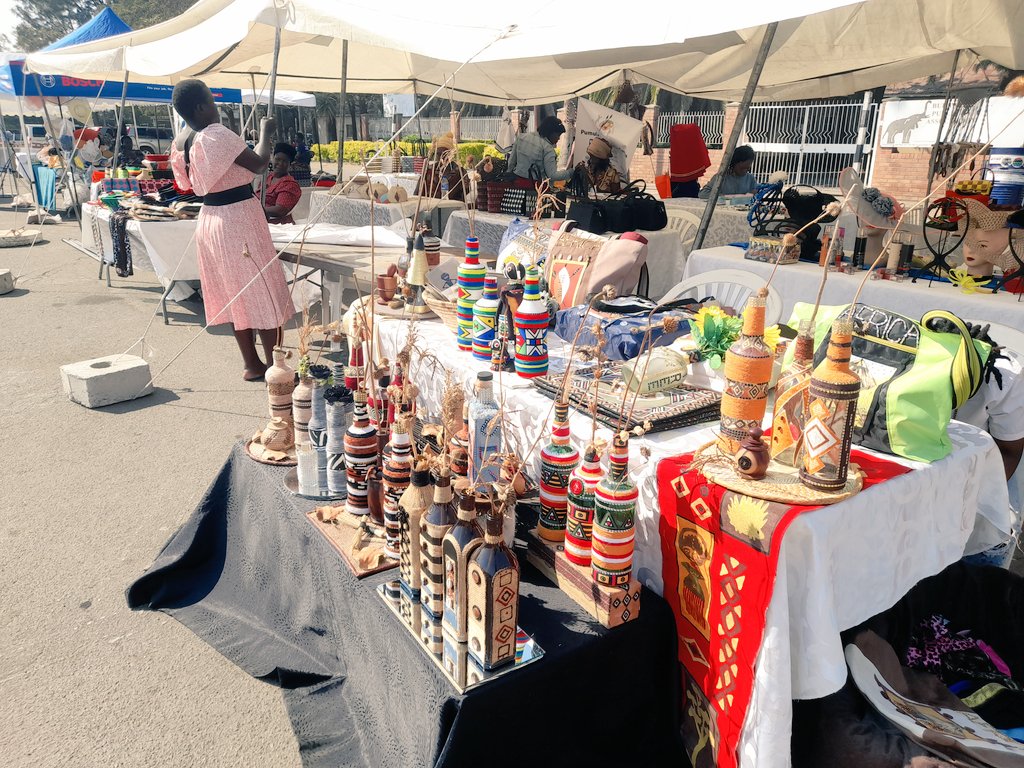Economic Empowerment Bill Aims to Boost SMEs and Attract Foreign Investment in Zimbabwe
Stakeholders in Bulawayo are optimistic that the Empowerment Bill will foster sustainable development and growth of micro, small, and medium enterprises (MSMEs) while also creating an environment more conducive to attracting foreign direct investment.
Speaking during a consultative meeting on the Economic Empowerment Bill at the Cresta Hotel hosted by the Ministry of Industry and Commerce in Bulawayo on 16 July to provide input on the government’s draft Economic Empowerment Bill, coordinator for the Bulawayo Chamber of SMEs, Nketha Dlamini, expressed optimism about the bill’s potential impact of being a facilitator in economic development.

“We actually encourage the build up of micro small medium enterprises, not necessarily within the open set up but we are also looking at within the open set up,” Dlamini said.
He added, “I think we are also aware that local authorities, both open and rural, are encouraged to put industrial space for micro small medium enterprises. So I’m seeing this bill as a facilitator to actually put that to the steam so that people start actually starting their companies.”
A key feature of the bill highlighted by Dlamini is the establishment of a dedicated fund to provide capitalisation for MSMEs and encourage startup activity.

“One feature which is there is there’s going to be a fund, which fund is going to be used for actual capitalisation of micro small medium enterprises and also encouraging start ups,” Dlamini noted.
He also said, “So I think this is one thing which has been lacking so far as the micro small medium enterprise sector was concerned where people were now scrambling for where to get capital to start up their businesses. Yes, there are business ideas which are there but we need to fund them.”
Dlamini also emphasised the importance of creating a conducive operating environment for SMEs through regulatory harmonisation between national and local government bodies.
“What needs to be ironed out makes more on the system point of view to say what is the relationship between the ministries themselves,” Dlamini explained.

Dlamini stated, “This Act if promoted will be managed by the Ministry of Industry and Commerce as things stand. But the majority of these resources are coming from under local government. So you have a situation where there is a need to synchronise those two sectors to say local government, we are coming in to actually improve and motivate businesses. But it’s operating within your space. How do we now synchronise the bylaws, the laws within the sectors?”
Chairperson of the Department of Accounting and Finance at Lupane State University, Dr. Sarudzai Simango, believes the new Economic Empowerment Bill represents an improvement over the previous Indigenisation and Empowerment Act in terms of attracting foreign investment.
“I think the Economic Empowerment Act is going to bring us an improvement in the levels of investments compared to the Indigenisation and Empowerment Act that we had before,” Simango said.
She added, “Because it has dealt with some of the sticking points that we had in the initial act. For example, the 51-49 percent share ownership and also other issues that had challenges with international investors before.”
Simango expressed optimism about Zimbabwe’s developmental prospects under the new legislation, stating, “Following our President’s mantra of leaving no one and no place behind, we say that this new bill is introducing empowerment of the communities where all investments are going to be taking place and we will see the grassroots developing as well and industries being initiated using the fund that is going to be generated from investments that happen in their communities.”
However, Dlamini also highlighted the need to address skill gaps within the MSME sector, particularly in areas such as compliance, management, and leadership.
“In the majority people are highly skilled in so far as production is concerned. But I think we fall short in so far as compliance, management, leadership and things like that,” Dlamini said.
He added, “So I’m looking at the industrialisation we are coming through to say how do we spruce up our companies so that we effectively compete and market our products regionally and internationally.”
The stakeholder consultation marks an important step in the legislative process as Zimbabwe seeks to create an environment more conducive to MSME growth and foreign direct investment. The insights shared by Dlamini and Simango suggest the proposed Economic Empowerment Bill has the potential to be a significant catalyst for Zimbabwe’s economic development, provided that key implementation challenges are effectively addressed.
Zimbabwe Takes Step Towards Economic Empowerment with New Bill
Bulawayo, Zimbabwe – The Bulawayo Chamber of SMEs and Lupane State University gathered on 16 July at Cresta in Bulawayo for a stakeholder consultative meeting on the draft Economic Empowerment Bill. The meeting aimed to discuss the potential impact of the bill on Zimbabwe’s economy and its ability to attract foreign investments.
Nketha Dlamini, the co-ordinator of the Bulawayo Chamber of SMEs, expressed optimism about the bill’s potential to encourage the growth of micro, small, and medium-sized enterprises (SMEs). Dlamini stated, “We actually encourage the build-up of micro small medium enterprises, not necessarily within the open set up but we are also looking at within the open set up.” He highlighted the need for industrial space for SMEs and the inclusion of a fund to provide capitalization to these businesses and encourage startups.
Dlamini emphasized the importance of creating a conducive environment for SMEs to operate and minimizing failures within the sector. He stated, “We are looking at the environment. How do we make the environment in which the micro small medium enterprise sector is operating conducive to them?…So that we minimize failures within that sector.”
Dr. Sarudzai Simango, the Chairperson of the Department of Accounting and Finance at Lupane State University, discussed the potential impact of the bill on Zimbabwe’s quest for foreign investments. Simango highlighted the improvements from the previous Indigenisation and Empowerment Act, such as the removal of the 51-49% share ownership requirement. He stated, “I think the Economic Empowerment Act is going to bring us an improvement in the levels of investments compared to the Indigenisation and Empowerment Act that we had before.”
Simango further discussed how the new bill aligns with President Emmerson Mnangagwa’s vision of leaving no one and no place behind. He emphasized the bill’s focus on empowering communities where investments are taking place, leading to grassroots development and the initiation of industries.
The stakeholder consultative meeting also addressed potential challenges in implementing the bill, particularly regarding the relationship between ministries and the synchronization of laws and bylaws. Dlamini raised concerns about coordinating the efforts of the Ministry of Finance and Commerce, which would manage the bill, with the resources provided by local government. He noted, “There is a need to synchronize those two sectors to say local government, we are coming in to actually improve and motivate businesses. But it’s operating within your space. How do we synchronize the bylaws, the laws within the sectors?”
Another point of discussion revolved around the importance of skill development for entrepreneurs and companies. Simango highlighted the need to enhance skills beyond production, such as compliance, management, and leadership. He noted, “We fall short in so far as compliance, management, leadership and things like that. So I’m looking at the industrialization we are coming through to say how do we spruce up our companies so that we effectively compete and market our products regionally and internationally.”
Overall, the stakeholder consultative meeting shed light on the potential positive impact of the draft Economic Empowerment Bill on Zimbabwe’s economy. With a focus on empowering SMEs, attracting foreign investments, and creating a conducive environment for businesses, Zimbabwe is taking steps towards achieving its developmental aspirations.
As the bill moves forward, stakeholders and government officials will continue to collaborate on fine-tuning the details and addressing any challenges to ensure its successful implementation. The future looks promising for Zimbabwe as it embraces economic empowerment and pursues its goal of sustainable economic growth.
#News in Bulawayo #News in Zimbabwe Artist Arts BCC Bulawayo Bulawayo City Council Bulawayo economy Bulawayo industry Bulawayo news Bulawayo Police Bulawayo Water Bulawayo Water Crisis Bulawayo Women entrepreneurship Business Women Cholera Community Culture Currency Drug Abuse Drugs Economy Farmer Farmers Farming Informal Sector Informal Traders Mining MSMEs Music News in Bulawayo News in Zimbabwe Police Police in Bulawayo Vendor Vendors water Water Crisis Water Shortage water supply issue Women entrepreneurship ZESA Zimbabwean economy Zimbabwe news Zimbabwe water crisis ZRP
Join us for all News in Bulawayo and Bulawayo News in Zimbabwe.












